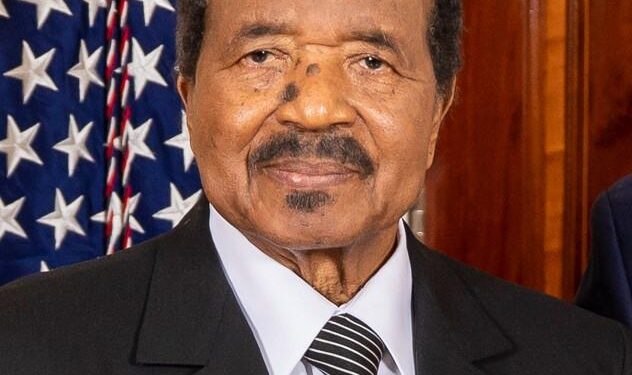President Paul Biya’s Return to Cameroon: Health Rumors and Political Ramifications
A Long-Awaited Return Amidst Health Concerns
After an extended period abroad, President Paul Biya has finally returned to Cameroon, ending weeks of speculation about his health. The 90-year-old leader, who has held power for over 40 years, was reportedly in Switzerland for medical treatment. His absence ignited widespread rumors regarding his physical condition and the future leadership of the country. Upon landing at Yaoundé Nsimalen International Airport, Biya addressed some concerns indirectly; however, official statements remained vague about the specifics of his health status.
The president’s arrival attracted significant media attention and heightened public interest, reflecting the deep concern among Cameroonians about their nation’s stability during this uncertain time.
Security Protocols and Public Sentiment During Biya’s Arrival
The return was marked by stringent security measures aimed at ensuring a smooth transition back into office amid a politically charged atmosphere. Citizens’ reactions were mixed—while many expressed relief that their long-standing leader had come back safely, others remained skeptical due to the lack of transparency surrounding his medical condition.
- Enhanced Security: Authorities deployed additional forces around key locations to prevent unrest.
- Diverse Public Opinions: From hopeful supporters emphasizing continuity to critics demanding openness on governance capabilities.
- Elections on the Horizon: Analysts suggest that Biya’s return could influence upcoming electoral dynamics significantly.
The Spectrum of Public Reactions and Political Consequences
Biya’s homecoming has stirred vigorous debate across social media platforms and political circles alike. Supporters view it as a stabilizing factor amid growing tensions within Cameroon’s diverse regions. Conversely, opposition groups have intensified calls for clarity regarding both his health and strategic plans moving forward.
- Ongoing Health Speculations: Persistent rumors question whether President Biya is physically fit to continue leading effectively in such challenging times.
- The Need for Stability: Proponents argue that maintaining current leadership is crucial given escalating regional conflicts and economic uncertainties.
- Dissenting Voices: Opposition leaders demand transparency concerning governance policies post-return.
This political environment may catalyze new alliances within opposition ranks as they seek leverage from perceived vulnerabilities in the ruling party’s grip on power. The following table outlines possible scenarios stemming from President Biya’s renewed presence in Cameroon’s political sphere:
| Potential Outcome | Description |
|---|---|
| Increased Security Operations | Heightened military deployment aimed at suppressing dissenting movements across restive regions like Anglophone areas. |
| Opposition Mobilization Intensifies | Protests demanding reforms could gain momentum with broader civil society participation. |
| Global Attention Heightens | International actors may increase scrutiny over human rights practices amid ongoing unrest concerns. |
Navigating Governance Challenges: Expert Perspectives on Cameroon’s Future Stability
The president’s recent return reignites critical conversations about governance stability against a backdrop of persistent socio-political challenges facing Cameroon today. As one of Africa’s longest-serving heads of state approaches another term amidst uncertainty surrounding his health status, experts warn this ambiguity risks exacerbating existing fractures—particularly in English-speaking Northwest and Southwest regions where separatist sentiments remain strong. Recent national events underscore these tensions further .
Certain pressing issues dominate discussions among analysts monitoring Cameroon’s trajectory going forward:
- Sustained Security Threats: Tensions persist as armed groups challenge governmental authority especially in Anglophone territories;
- Economic Uncertainty: A volatile global market coupled with fluctuating oil revenues necessitates urgent diversification efforts;
- Civic Discontent: Younger generations alongside civil organizations increasingly demand transparent governance reforms;
Tackling these multifaceted challenges requires adaptive leadership capable not only of preserving national unity but also addressing grassroots demands effectively ahead of forthcoming elections scheduled within the next two years. Balancing ethnic diversity while fostering inclusive development remains paramount if peace is to be sustained long-term throughout Cameroon’s complex socio-political fabric.< / p >
< / section >
A Critical Juncture for Cameroon’s Leadership Journey Ahead
The reappearance of President Paul Biya after weeks away signals an important moment laden with both hope and uncertainty for Cameroon’s future direction. While it temporarily eases fears related to leadership vacuum concerns sparked by prolonged silence abroad, questions linger regarding how effectively he can steer through mounting internal pressures including economic recovery efforts alongside demands for greater accountability from citizens.< / p >
This pivotal phase will undoubtedly shape perceptions domestically while attracting continued international observation focused on human rights conditions as well as democratic processes unfolding under his administration. Transparency remains key moving forward .< /a>
Cameron faces critical decisions ahead — balancing security imperatives against calls for reform will determine whether stability prevails or deeper divisions emerge during this defining chapter under one of Africa’s most enduring presidencies.< / p >
< / section >
< / article >














